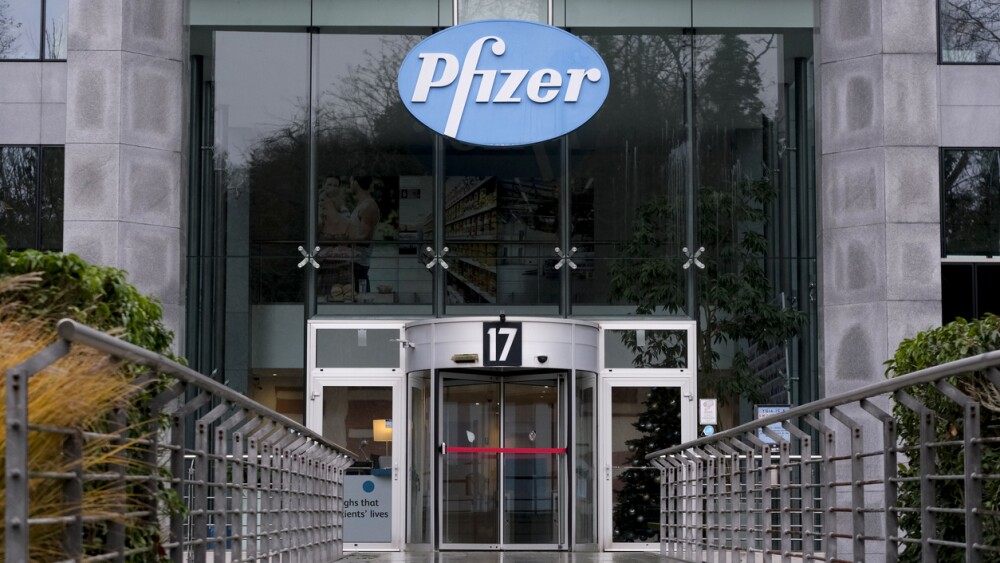RESEARCH TRIANGLE PARK, N.C. & SANTA CLARA, Calif.--(BUSINESS WIRE)--GlaxoSmithKline and XenoPort, Inc. today announced top-line results from a Phase II clinical trial evaluating GSK1838262/XP13512 (gabapentin enacarbil) in adult patients with neuropathic pain associated with post-herpetic neuralgia (PHN) who have had a history of inadequate response to gabapentin doses of 1800 mg/day or higher. In this double-blind, two-period cross-over study, 3600 mg/day of GSK1838262 demonstrated a statistically significant improvement over 1200 mg/day of GSK1838262 on the primary endpoint, which was the change from baseline to the end of the treatment period in the 24-hour average pain intensity score. A greater reduction in the 24-hour average pain score was observed for the 3600 mg/day dose than for the 1200 mg/day dose (adjusted difference of -0.29; p=0.013).
This study enrolled 138 subjects diagnosed with PHN who had been experiencing pain for at least three months following healing of the herpes zoster skin rash. Subjects with a history of inadequate response to gabapentin entered a baseline period where they received a dose of 1800 mg/day of gabapentin for two weeks. Subjects (N=96) who had a 24-hour average pain score of at least four on the 11-point pain intensity rating scale were then randomized to receive either 1200 mg/day of GSK1838262 for the first 28-day treatment period followed by 3600 mg/day for the second 28-day treatment period, or 3600 mg/day followed by 1200 mg/day. Subjects received 2400 mg/day of GSK1838262 for four days in between the two treatment periods.
The only treatment-emergent adverse event occurring in greater than or equal to 5% of subjects taking GSK1838262 was nasopharyngitis (5%). Among the other adverse events noted in this study, dizziness and somnolence occurred at rates of 4% and 3%, respectively, and were mild in intensity. Withdrawals due to adverse events during GSK1838262 treatment occurred in 3% of subjects.
“These results from another positive study of GSK1838262 in the treatment of PHN will be important as we evaluate our next steps in the development program for neuropathic pain,” said Atul Pande, M.D., senior vice president, GlaxoSmithKline Neurosciences Medicines Development Center.
“Clinical trial experience has shown that there are PHN patients who do not experience adequate pain relief,” said Ronald W. Barrett, Ph.D., chief executive officer of XenoPort. “We are encouraged by these Phase II results and plan to share further details about the study at a future medical meeting.”
About PHN
Post-herpetic neuralgia is a neuropathic pain syndrome that primarily affects people over fifty and often results in disability. PHN follows an outbreak of herpes zoster, commonly known as shingles. Approximately one million people in the United States develop shingles each year. Of these, nearly 15 percent develop PHN.
Conference Call and Webcast Information
XenoPort will host a conference call at 9:00 a.m. Eastern Time today. To access the conference call via the Internet, go to www.XenoPort.com. To access the live conference call via phone, dial 1-888-275-3514. International callers may access the live call by dialing 1-706-679-1417.
The replay of the conference call may be accessed after 12:00 p.m. Eastern Time today via the Internet, at www.XenoPort.com, or via phone at 1-800-642-1687 for domestic callers or 1-706-645-9291 for international callers. The reference number to enter the call and the replay of the call is 33994392.
GSK1838262 is a new chemical entity that is designed to provide dose proportional and sustained exposure of gabapentin by taking advantage of high-capacity transport mechanisms in the gastrointestinal tract. A New Drug Application for GSK1838262 for the treatment of moderate-to-severe primary restless legs syndrome (RLS) is being reviewed by the U.S. Food and Drug Administration.
GlaxoSmithKline – one of the world’s leading research-based pharmaceutical and healthcare companies – is committed to improving the quality of human life by enabling people to do more, feel better and live longer. For further information please visit www.gsk.com.
XenoPort is a biopharmaceutical company focused on developing a portfolio of internally discovered product candidates that utilize the body’s natural nutrient transport mechanisms to improve the therapeutic benefits of existing drugs. XenoPort is developing its lead product candidate in partnership with Astellas Pharma Inc. and GSK. XenoPort’s product candidates are being studied for the potential treatment of RLS, gastroesophageal reflux disease, migraine headaches, neuropathic pain, spasticity related to spinal cord injury and Parkinson’s disease. To learn more about XenoPort, please visit the Web site at www.XenoPort.com.
GlaxoSmithKline cautionary statement regarding forward-looking statements
Under the safe harbor provisions of the U.S. Private Securities Litigation Reform Act of 1995, GSK cautions investors that any forward-looking statements or projections made by GSK, including those made in this announcement, are subject to risks and uncertainties that may cause actual results to differ materially from those projected. Factors that may affect GSK' s operations are described under 'Risk Factors' in the 'Business Review' in the company' s Annual Report on Form 20-F for 2008.
Contact:
GlaxoSmithKline Enquiries: US Media enquiries: Holly Russell, 919-483-2839 Mary Anne Rhyne, 919-483-2839 or US Analyst / Investor enquiries: Tom Curry, 215-751-5419 Jen Baxter, 215-751-7002 or XenoPort Enquiries: Analyst/Investor and Media enquiries: Jackie Cossmon, 408-616-7220




